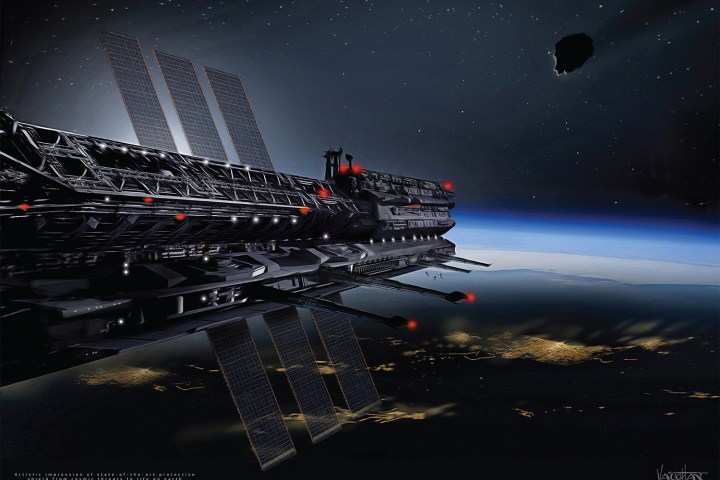
Not much is known about the nation of Asgardia. Yesterday, chairman of United Nations Organization for Education, Science and Culture’s (UNESCO) Science of Space committee, founder of the Aerospace International Research Center (AIRC), and mastermind behind the nation of Asgardia, Igor Ashurbeiyli, announced some minor details about his brainchild through a translator.
“Physically the citizens of that nation state will be on Earth,” Ashurbeiyli told the Guardian through an interpreter, “they will be living in different countries on Earth, so they will be a citizen of their own country and at the same time they will be citizens of Asgardia.”
Anyone over 18 can apply for Asgardian citizenship by filling in basic contact details online. Nearly 55,000 people have reportedly already applied by the time this article was published, bringing Asgardia more than halfway to the 100,000 citizens needed to officially apply to the UN. At that point, it would be up to a majority vote by UN members to give Asgardia the designation.
But that vote is unlikely, according to professor of space law at the University of Nebraska, Frans von der Dunk, who spoke to Popular Science about Asgardia. For one thing, nationhood does not necessarily satisfy statehood.
“A state in the classical sense has a territory and has a significant portion of its population living on that territory,” von der Dunk said. “As long as nobody’s going into space, you can have as many signatures as you want, but you are not a state.”
The Outer Space Treaty, which governs both private and public space activity, would only bar Asgardia from from attempting to claim territory on some celestial body like an asteroid or the moon. Otherwise, the nation is technically legal. Von der Dunk admires the project’s optimism but does not see it as particularly timely.
“This may be the germ that 50 years from now will create a true nation in outer space,” he said, “but I don’t see that happening overnight, or even in the next 10 or 20 years.”
Asgardia’s only professed mission is as ambitious, vague, and lofty as its bid for statehood — it wants to be our first line of defense against cosmic threats. Once the nation establishes itself in space, it will attempt to create a shield to protect Earth from things like asteroids and coronal mass ejections from the sun. Though the technology to achieve this is a long way off, Asgardia says it plans to launch its first satellite sometime next year.
Editors' Recommendations
- Asimov’s vision of harvesting solar power from space could become a reality
- SpaceX’s dramatic 360 video of Starship launch puts you on the launch tower
- Swatch lets you put a stunning Webb space image on a watch face
- The space station will become a little less crowded on Saturday
- Scientists explain cosmic ‘question mark’ spotted by Webb space telescope


